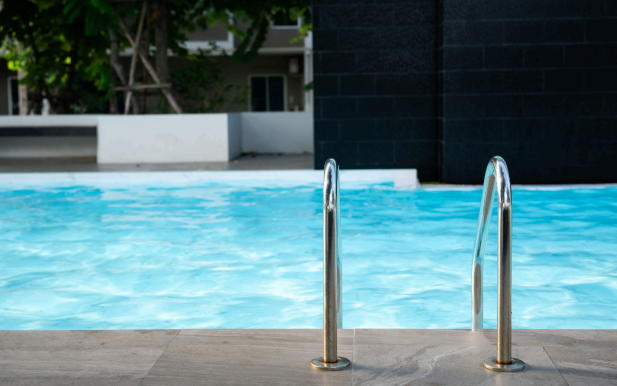Myths About Swimming in Pools

Myths About Swimming in Pools
- October 18, 2024
- Uncategorized
Do you really need to wait 30 minutes after eating to go swimming? Is it the chlorine that makes your eyes red when swimming in a pool?
Let’s take a closer look at these and several myths we’ve heard since childhood!
1. You can't get sunburned while in the pool.
Reality: Many people think that being in the water shields them from sunburns, but this isn’t true. In fact, water can reflect as much as 50% of UV rays, and sunlight can penetrate below the surface.
This means you can still be at risk for harmful UV exposure, even when you're submerged.
To safeguard your skin, it’s crucial to apply a generous amount of water-resistant sunscreen and reapply it every couple of hours, particularly after swimming.
2. You should wait 30 minutes to swim after eating.
Reality: This myth seems to have originated from the notion that swimming after eating might cause cramps or discomfort. While some may experience slight unease after a meal, there's no scientific evidence requiring a wait before swimming.
In fact, most people can swim safely shortly after eating. If you happen to feel unwell afterward, it's wise to take a break, but there's no strict rule against swimming right away.
3. Chlorine causes red eyes.
Reality: Chlorine itself is not the main culprit behind red, irritated eyes in swimmers. When chlorine is added to pool water, it combines with contaminants like sweat, urine, and skin cells to form chloramines. These chloramines are what irritate the eyes and lead to redness.
To mitigate this, pool owners can maintain proper water chemistry, and swimmers can use goggles to protect their eyes from irritation.
4. You can’t drown in shallow water.
Reality: This myth poses significant risks. Drowning can happen in mere inches of water, posing a serious threat, especially to young children or those who are not confident swimmers.
Factors like slipping, falling, or being unable to regain footing can easily lead to drowning, even in shallow areas. It's crucial to keep a close watch on children near any water and to prioritize water safety at all times.
5. You should shower before and after swimming.
Reality: Showering before swimming is essential for maintaining water quality in pools. It helps remove sweat, lotions, deodorants, and other contaminants that can interact with chlorine and lead to the formation of chloramines.
Showering after swimming is equally important, as it helps rinse off chlorine and other chemicals that can irritate the skin and hair. Regularly showering also helps keep the pool cleaner for everyone.
6. Swim lessons are only for kids.
Adults may encounter a range of obstacles when it comes to swimming, including water anxiety, self-doubt, or the simple fact that they never had the chance to learn.
Taking swim lessons can be a transformative experience, offering a supportive setting to build skills, refine techniques, and boost confidence in the water.
Many programs designed for adults cater to individual needs and objectives, ensuring that the learning process is both productive and enjoyable.
Rising Sun Pools – Pool Builders in Raleigh, NC
The most trusted pool builder in the Triangle Area since 1972, Rising Sun Pools has helped countless Raleigh, NC homeowners design and install phenomenal in-ground and above-ground pools and outdoor living spaces for over 50 years!
Ready to design YOUR dream pool? Use our Pool Builder tool, now! Or contact our team today.
READ MORE:
Looking to Give Your Aging Pool New Life?
Need help with your water testing? Rising Sun Pools has an app for that
Recent Posts
- From Green to Clean: How to Fix Cloudy or Algae-Filled Pool Water Fast
- The Hidden Costs of DIY Pool Maintenance (and How to Avoid Them)
- Why It’s Time to Renovate That “COVID Pool” and Why Rising Sun Pools Builds Better
- Winter Water Chemistry: Why It Still Matters Even When You’re Not Swimming
- How to Winterize Your Aboveground Pool in the Triangle
- Energy-Efficient Hot Tub Tips for Triangle Homeowners
- Investment Protection: How Regular Fall Maintenance Saves You Thousands
- Leaf Management: Protecting Your Pool from Fall's Beautiful Mess
- Why September May Be the Best Time to Start Planning Your Pool Project
- Why Pool Customers Can Trust Rising Sun Pools
